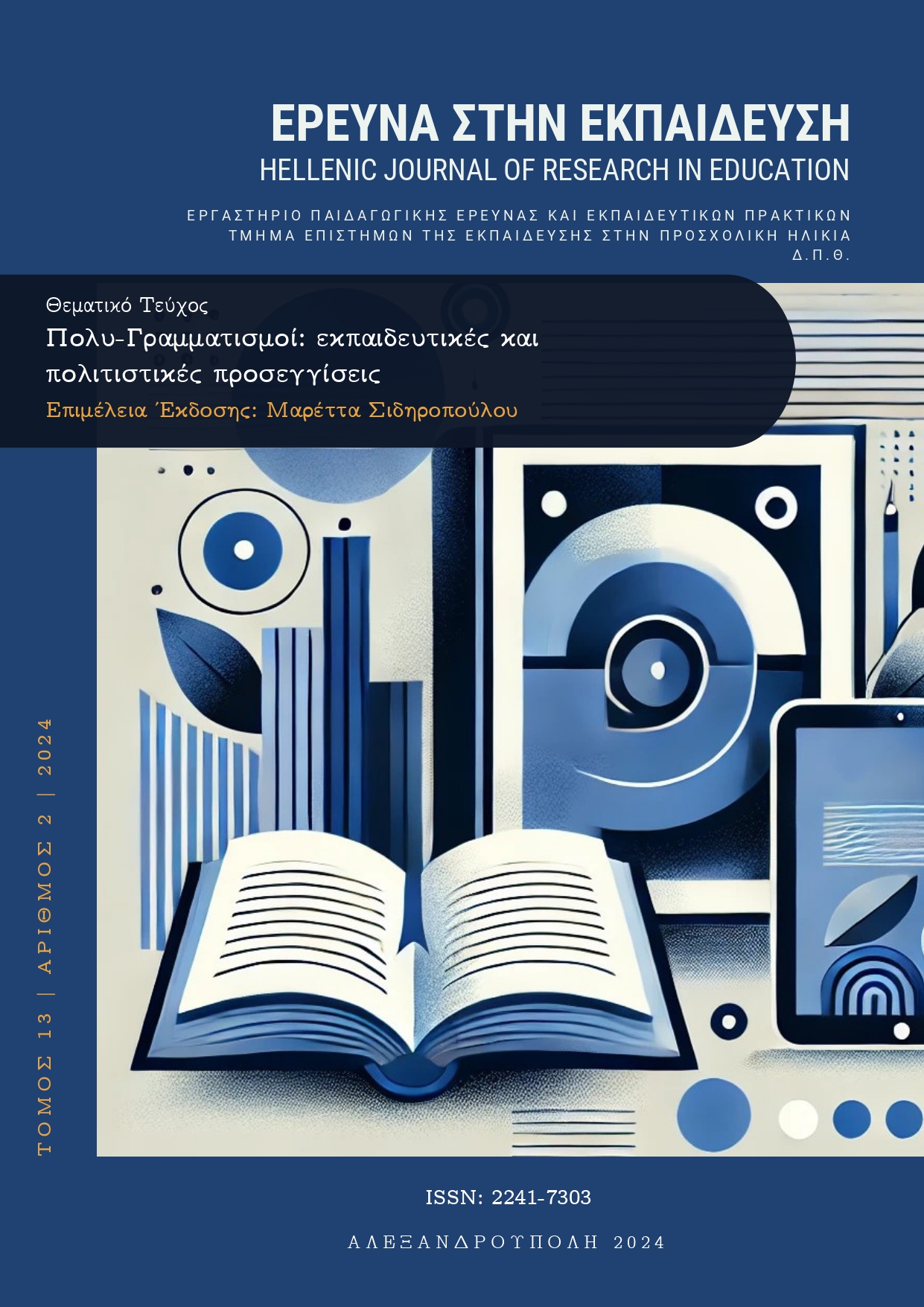A transition of the Greek educational system towards visual literacy: A study of the New Curricula of Visual Arts

Abstract
The purpose of this article is to highlight the relevance of visual arts to visual literacy as well as its multiple links to other subjects, such as science and language. In order to achieve this, a bibliographical research was conducted on the use of the term 'visual literacy' in the new curricula for visual arts in primary and secondary education, and an attempt was made to identify implicit references to the term in the curricula of other subjects. In addition, this text provides a historical overview of visual arts education in modern Greece since its inception, as well as the development of visual arts education in primary schools from 1995 to the present. It is important to note that the term 'visual' in English can be translated into two different terms in Greek: 'visual' which pertains to the visual arts, and 'optical' which refers to anything perceived through vision. New curricula intertwine these two terms in a constant conversation between art and everyday life.
Article Details
- How to Cite
-
Rapanaki, M., & Sidiropoulou, M. (2024). A transition of the Greek educational system towards visual literacy: A study of the New Curricula of Visual Arts. Hellenic Journal of Research in Education, 13(2), 156–168. https://doi.org/10.12681/hjre.37392
- Section
- Articles

This work is licensed under a Creative Commons Attribution-NonCommercial-ShareAlike 4.0 International License.
Authors who publish with this journal agree to the following terms:
- Authors retain copyright and grant the journal right of first publication with the work simultaneously licensed under a CC-BY-NC-SA that allows others to share the work with an acknowledgement of the work's authorship and initial publication in this journal.
- Authors are able to enter into separate, additional contractual arrangements for the non-exclusive distribution of the journal's published version of the work (e.g. post it to an institutional repository or publish it in a book), with an acknowledgement of its initial publication in this journal.
- Authors are permitted and encouraged to post their work online (preferably in institutional repositories or on their website) prior to and during the submission process, as it can lead to productive exchanges, as well as earlier and greater citation of published work (See The Effect of Open Access).


